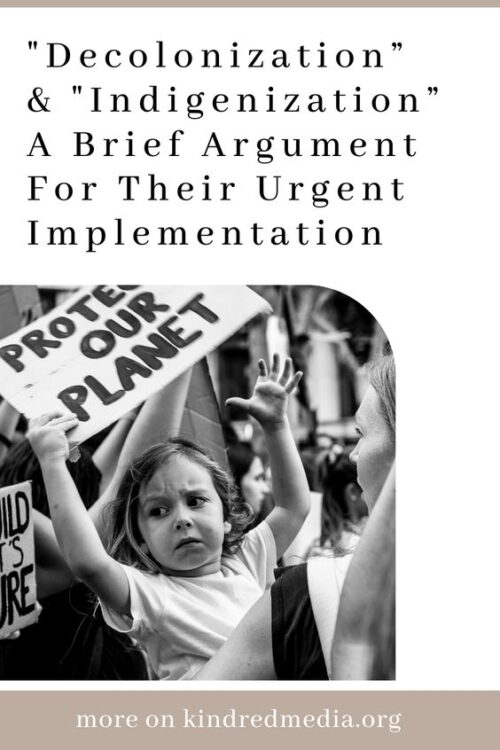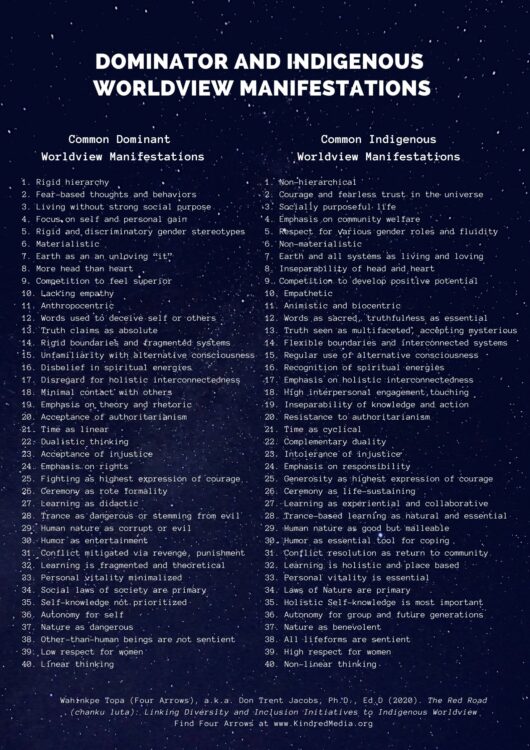Understanding the “Cultural Bomb” of Whiteness
White racism has a long but mostly recent history.
In a prior post I discussed ways that individuals can address their own racism, valuing one group of people over another (and treating them with greater respect). But those exercises did not address the deeper roots of white privilege. Although individuals can be racist, so can cultures. White supremacy holds in higher esteem not only white people but their cultural ways.
People ask why is it admirable to promote racial identity for everyone except white people. Why is it okay to have African-American pride events, for example, and not white pride events?
To advocate for pride in any non-white identity is to promote its cultural equality with the white culture, whereas to have white pride means to advocate for the maintenance of the last few hundred years of white-European domination of other cultures. From the perspective of non-whites, it’s as if in the last 500 years or so white Europeans exploded a “cultural bomb” all over the world, diminishing the value of non-white people and their ways—through colonization, imperialism, industrialization and globalization.
Ngugi wa Thiong’o (1986) said of Western imperialism in Africa:
“The effect of the cultural bomb is to annihilate a people’s belief in their names, in their languages, in their environment, in their heritage of struggle, in their unity, in their capacities and ultimately in themselves. It makes them see their past as one wasteland of non-achievement and it makes them want to distance themselves from that wasteland. It makes them want to identify with that which is furthest removed from themselves, for instance, with other peoples’ languages rather than their own. It makes them identify with that which is decadent and reactionary, all those forces that would stop their own springs of life. It even plants serious doubts about the moral righteousness of struggle. Possibilities of triumph or victory are seen as remote, ridiculous dreams. The intended results are despair, despondency and a collective death-wish.”
Thus, promoting non-white racial identity is an attempt to break through the depression that white supremacy brings to non-whites.
The orientation to valuing some persons more than others is a legacy of settled agricultural societies, which emerged roughly 10,000 years ago in places around the world. About 99% of human genus history was spent in egalitarian foraging bands (social organizations still in existence) that live in partnership with the biocommunity, and are fiercely egalitarian (Boehm, 1999; Ingold, 2005). In contrast, agricultural societies use coercion (Sorenson, 1998). Coercion is first deployed against nature: Instead of accepting what nature offers in abundance by migrating to and gathering wild foods, settled societies use coercion to cultivate certain plants and eliminate others, to domesticate agreeable animals and exterminate others (Martin, 1992).
At the same time, people must be coerced. Because farming is drudgery, some people (slaves, serfs, low-wage workers) are forced to labor for others, enforcing a hierarchy of value. Other persons were permitted to accumulate and hoard wealth, establishing a hierarchy (Zerzan, 2018). The lower classes are required to work “for the good of society,” maintaining the system of privilege and wealth accumulation at the top (Tuchman, 1978). To keep people from rebelling against inequality, narratives about the goodness of the system, a form of psychological coercion, developed alongside physical coercion (e.g., religious narratives, laws, punishments, soldiers) (Scott, 2017).article continues after advertisement
Settled societies use up the natural world’s resources near them and thus must take over the resources or lands of others to keep their systems going (Moore, 2009). As European societies decimated their resources (e.g., cutting down forests to make charcoal for smelting furnaces or for building ships), they had to find other sources to keep the system going (Tuchman, 1978). Along with church laws endorsing the takeover of non-Christian lands, “discovery” of the “new world” and colonialism fit the bill (Turner, 1994; Wilkins, 2014). Colonialism and its dependence on slavery were facilitated by the worldview that only European males mattered, all others were part of nature to be used for production and profit (Moore, 2009). Colonialism emphasized the difference between the enslaved and the unenslaved, primarily based on skin color, in order to keep slaves in their place (Lepore, 2019).
Societies can set up their institutions and policies so that some persons are treated with greater respect than others, and that’s what happened in the United States from the beginning (Lepore, 2019). The U.S. Constitution was written to count slaves as 3/5 of a human being, giving slaveholding states more power in population representation even though the slaves themselves could not vote. Land-wealthy white males originally were the only voting citizens. School textbooks continue perpetuating the view that white-male history and accomplishments are the most valuable. “Manifest Destiny” was the orientation that European settlers to the Americas had a duty to take the land from natives and dominate.
The study of whiteness and the history of white people has become a field of scholarship. In fact, Nell Irvin Painter (2010) starts the history with ancient Mediterranean societies, such as the ancient Greeks, where slavery was commonplace.
The history of colonialism and slavery of the last few hundred years, along with justification of these activities, included making skin color a feature of privilege. But the foundations for even making skin color a feature of privilege is rooted in a number of other metaphors that have guided leaders in Western cultures for centuries and arguably have led to the ecological destruction (e.g., sixth mass extinction) underway (Kolbert, 2014).
These metaphors become deeply rooted in the schemas, or conceptual structures, of white-European culture worldviews that Westernized peoples bring to situations and take to be the way the world works: for example, progress, dualism, mechanism, materialism, measurement. In the next post, I discuss these as part of the domination mindset associated with white-European culture.
References
Boehm, C. (1999). Hierarchy in the forest: The evolution of egalitarian behavior. Cambridge, MA: Harvard University Press.
Ingold, T. (2005). On the social relations of the hunter-gatherer band. In R.B. Lee, R.B. & R. Daly (Eds.), The Cambridge encyclopedia of hunters and gatherers (pp. 399-410). New York: Cambridge University Press.
Kolbert, E. (2014). The sixth extinction: An unnatural history. New York, NY: Henry Holt.
Lepore, J. These truths: A history of the United States. New York: W.W. Norton.
Manning, R. (2004). Against the grain: How agriculture has hijacked civilization. New York: North Point Press.
Martin, C. L. (1992). In the spirit. Baltimore, MD: Johns Hopkins University Press.
Merchant, C. (1983). The death of nature: Women, ecology and the scientific revolution. New York, NY: Harper & Row.
Ngugi, wa Thiong’o (1986). Decolonizing the mind. Portsmouth, NH: Heinemann.
Painter, N.I. (2010). The history of white people. New York: W.W. Norton.
Sale, K. (2006). After Eden: The evolution of human domination. Durham, N.C.: Duke University Press
Scott, J. C. (2017). Against the grain: A deep history of the earliest states. New Haven, CT: Yale University Press.
Sorenson, E.R. (1998). Preconquest consciousness. In H. Wautischer (Ed.), Tribal epistemologies (pp. 79-115). Aldershot, UK: Ashgate.
Tuchman, B.W. (1978). A distant mirror: The calamitous 14th century. New York: Knopf.
Turner, F. (1994). Beyond geography: The Western spirit against the wilderness. New Brunswick, NJ: Rutgers University Press.
Weber, M. (1904/2009). The Protestant Ethic and the Spirit of Capitalism. New York: W.W. Norton Critical Editions.
Wilkins, D. (2014). Deconstructing the Doctrine of Discovery. Indian Country Today Media Network .
Zerzan, J. (2018). A people’s history of civilization. Port Townsend, WA: Feral House.





